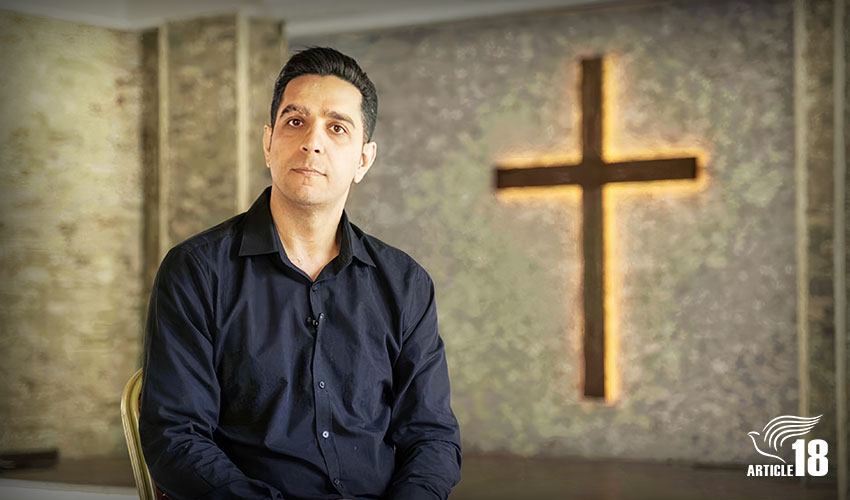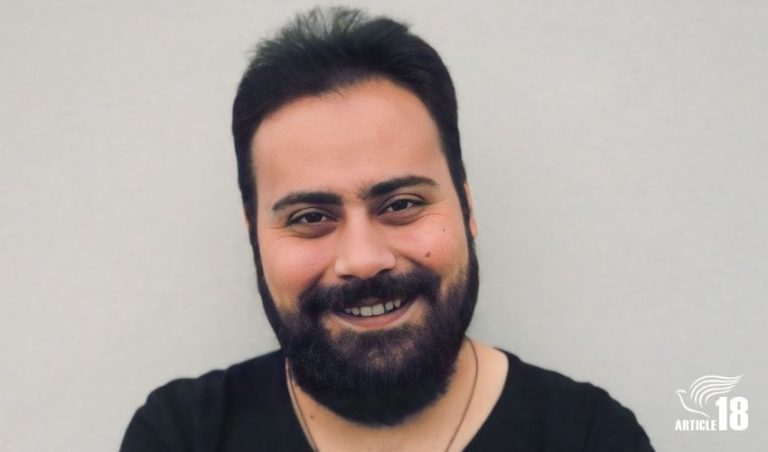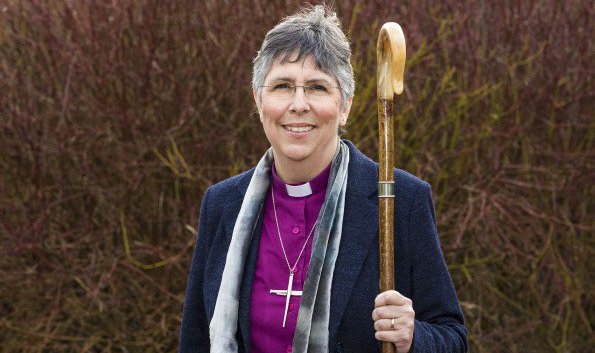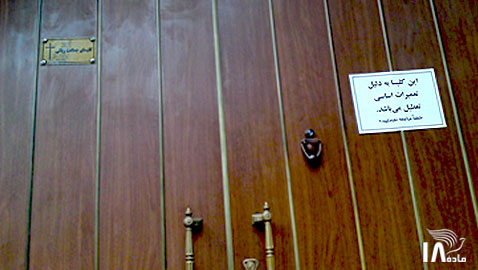
When he was arrested, Vahid Hakani told his interrogator he hadn’t known until that day “that gathering and worshipping and praying in the name of Christ is not legal in Iran”.
His interrogator wanted him to confess that he was part of a “deviant Christian sect”, and pledge to no longer have any more interactions with other house-church members.
Vahid said he couldn’t promise not to see the other members – “they are my whole life!” – and added: “We aren’t a deviant sect. We’re Christians!”
“The official churches of Iran don’t accept you,” the interrogator responded.
And on this point, at least, the interrogator wasn’t entirely wrong; after becoming a Christian, Vahid had soon found out that there is no place for converts in the churches of Iran today.
“There are many churches in Iran, some of which are considered historical monuments, and for many years many people entered these churches and worshipped God,” Vahid explains. “But the government of the Islamic Republic doesn’t allow Persian-speakers to become members and participate in the meetings in the church buildings.
“They have ordered and threatened the leaders of the churches that they must not allow Christian converts to enter.”
Vahid says he tried “several times” to enter the church building in his city – Simon the Zealot Church in Shiraz – and even once, through an Armenian friend, got in.
But the process was far from easy, and he couldn’t become a member.
“Church buildings are controlled by the government, and the Shiraz church building is between the offices of the Ministry of Intelligence and the Ministry for the Promotion of Virtue and the Prevention of Vice,” Vahid explains. “A camera has been installed in that alley, and all entrances and exits to the church are under the authorities’ control.
“The sermons also aren’t in the Persian language, and for this reason Persian-speaking Christian converts are forced to gather secretly in their homes, and pray and have Christian fellowship with other Christians in house-churches.”
But for this, as Vahid was soon to find out, there can be a heavy price to pay.
“As the number of our members and house-churches grew, we knew we ran the risk of one day being arrested by the Ministry of Intelligence,” he says. “Sometimes, we felt that we were being followed, or that our phones were being tapped, and later on we found out that our suspicions were correct.”
Before his arrest, Vahid was twice interrogated and threatened by agents from the Ministry of Intelligence. Then, on Wednesday 8 February 2012, his house-church gathering was raided, and he and seven other members were taken away.
Vahid and three of the others would spend the next three years in prison.
‘Everything was black’
One of the hardest parts of his initial detention, Vahid says, was being blindfolded:
“I didn’t know where they were taking me, or who was holding my hand. Everything was black, and dark. It was the first time I’d ever had to go anywhere while wearing a blindfold, and it caused me to experience a lot of negative thoughts.
“I had seen some videos of the killing of students in the protests of 2009, where students were thrown, blindfolded, from the roof. Sometimes, I imagined that they were going to throw me down from a high place, like a cliff.”
Vahid endured many other challenges during his time in prison, not least 12 months of intestinal bleeding.
Vahid was examined by numerous doctors over this period, but says the whole process was humiliating.
“With handcuffs on my hands and feet, and accompanied by four armed officers, they would take me out of prison back into the outside world, and to the hospital,” he explains. “In my release note, they would write: ‘Under strict protection!’ One of the officers even asked: ‘What did you do that they have written that you are under strict protection?’ I said: ‘I’m a Christian!’
“The sound made by the chains on my legs made people look at me suspiciously, and distance themselves from me. They must have thought I had committed a serious crime. I felt very humiliated.”
Vahid describes how the doctor who operated on him, during their first meeting, “was afraid when he saw the shackles on my legs and the officers by my side carrying guns” and “examined me with fear, at a distance, and clearly not feeling at all comfortable”.
When this doctor finally found out his patient’s true “crime”, he apologised and admitted: “With the way they brought you in, I thought you must be a dangerous prisoner.”
Vahid also underwent two hunger strikes during his three years in prison, for 85 days in total, and says that afterwards he “lost about 35 kilos and was extremely weak and emaciated”, and “years later, I still suffer from the physical effects of those hunger strikes”.
‘I had nowhere to go’
Even after his eventual release, life was far from easy for Vahid.
“I had no place to live,” he explains. “I had lost my home and shop; I didn’t have a job; I didn’t even have money to rent a room.
“Before prison, I had a good job and my business was booming. Now, I had lost my job and had been forced to sell many of my belongings. When I got out of prison, I sometimes said to myself that ‘I wish I hadn’t applied for conditional release’, because I had nowhere to go outside prison.
“My family wasn’t waiting for me [Vahid’s mother died when he was 13, and he didn’t know his father]; I was a single young man and, due to my age, I didn’t feel comfortable about staying long-term with other people.”
Meanwhile, other church members were afraid to meet, knowing Vahid was likely still under the surveillance of the Ministry of Intelligence.
One of Vahid’s friends suggested he travel to Turkey to lighten his move.
Vahid did so, and he never returned.
“More Christians were being arrested, and after evaluating the situation, I decided not to,” he explains.
“But I felt very lonely in Turkey, as I didn’t have any close friends there. I had no money, no job, and I didn’t know Turkish. I had left my country and was a stranger in this country. The first months in Turkey were very bitter for me, and I had nightmares of prison for a long time. Once, I even decided to commit suicide.
“I decided to ask everyone who knew me to pray for me, and after about three or four months, my mental condition changed.”
Today, Vahid is married with two children, and works with an organisation that supports other Christians suffering from persecution.
You can read Vahid’s full Witness Statement here.



0 Comments
Trackbacks/Pingbacks